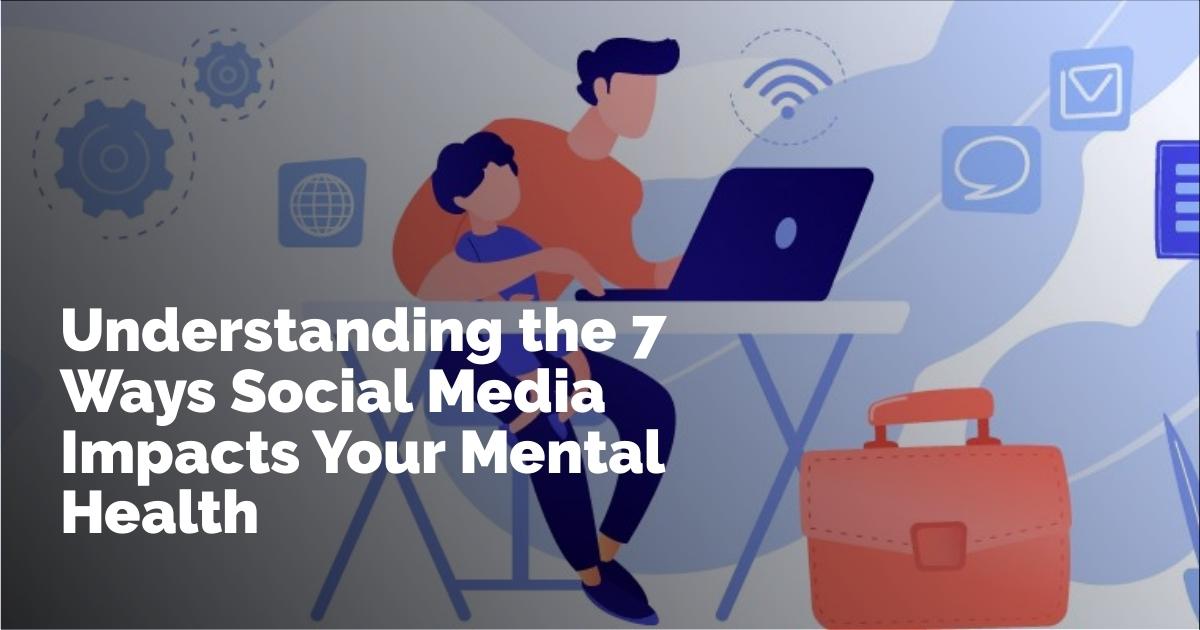Social Media's Impact on Mental Health: A Double-Edged Sword
The rise of social media has been meteoric, with billions of users worldwide engaging with platforms that have transformed how we communicate, share, and view the world. However, this digital revolution has brought with it a surge of concern over its potential effects on mental health. Recent studies and expert opinions bring to light a complex, multifaceted relationship between social media usage and mental health, urging society to consider both its harmful and beneficial aspects.
Effects of Social Media on Mental Health
- Increased Anxiety and Depression
Social media often paints a picture-perfect world where users share curated moments of their lives. This idealized portrayal can contribute significantly to anxiety and depression, especially among teenagers and young adults. The pressure to maintain an appealing online persona and the incessant need for external validation can worsen feelings of inadequacy. The phenomenon of doomscrolling, where users consume endless negative news, further heightens stress and anxiety, fostering a cycle of mental health deterioration.
- Cyberbullying
The anonymity and reach of social media have amplified the incidence of cyberbullying. Unlike traditional bullying, cyberbullying can occur around the clock, leaving victims with little respite. Emotional distress from online harassment leads to severe mental health issues such as anxiety, depression, and even suicidal thoughts. Both teens and adults experience these repercussions, highlighting cyberbullying as a growing societal issue.
- The Fear of Missing Out (FOMO)
FOMO is a psychological phenomenon driven by social media, where individuals feel an intense desire to keep up with social happenings. This constant connectivity breeds feelings of inadequacy and exclusion when users perceive they are missing out on shared experiences. Whether it's personal events or workplace activities, FOMO takes a toll on people's mental well-being, contributing to anxiety, stress, and even workplace dissatisfaction.
- Sleep Disruptions and Lower Work Productivity
Excessive social media usage, especially before bedtime, is linked to sleep disruptions. The blue light emitted from screens impairs sleep by affecting circadian rhythms, leading to sleep disorders like insomnia. Poor sleep affects cognitive functions, diminishing work productivity and overall quality of life. Social media's incessant nature also distracts as users check their devices constantly, impacting focus and efficiency during work hours.
- Comparison and Body Image Issues
The comparison culture fostered by social media affects users' self-esteem and body image. Filters and carefully crafted content create unrealistic standards, driving individuals to strive for unattainable perfection. This pressure significantly impacts teenagers and young women, leading to body image issues and eating disorders. Social media also affects adults, with a substantial number expressing dissatisfaction with their appearance due to online comparisons.
- Addiction
The addictive nature of social media, driven by dopamine-inducing environments, cannot be overlooked. Users often engage compulsively with these platforms, spending excessive time online at the expense of real-world interactions. Social media addiction hampers productivity, particularly in workplaces where employees spend work hours engrossed in personal browsing activities instead of fulfilling job responsibilities.
- Isolation
While social media claims to connect people, it has paradoxically increased social isolation. The superficial nature of online interactions lacks the depth of face-to-face connections, leaving individuals feeling lonelier despite being digitally engaged. This false sense of connectivity decreases genuine social interactions, contributing to feelings of loneliness and social withdrawal.
The Complex Relationship: Benefits Amidst the Drawbacks
Despite the highlighted drawbacks, social media offers undeniable benefits, such as fostering connections, providing platforms for self-expression, and enabling knowledge sharing. These positives, however, are often overshadowed by the adverse effects on mental health. The challenge lies in harnessing the benefits while mitigating the negative impacts, ensuring a balanced approach to social media usage.
Mitigating the Negative Effects of Social Media
As concerns over social media's impact on mental health grow, various measures can help manage and mitigate these effects. Setting time limits on usage, scheduling regular breaks, and curating one's social media feed can significantly improve one's relationship with these platforms. Engaging in offline activities, reducing notifications, and practicing mindfulness are beneficial techniques to reduce dependency on social media. Furthermore, fostering open communication with friends and family can create a support system to navigate social media's challenges.
Ultimately, while social media plays an integral role in contemporary society, understanding and addressing its potential downsides are crucial for mental health and well-being. A mindful and informed approach to social media consumption can help individuals reap its benefits while safeguarding their mental health.
출처 : Original Source

